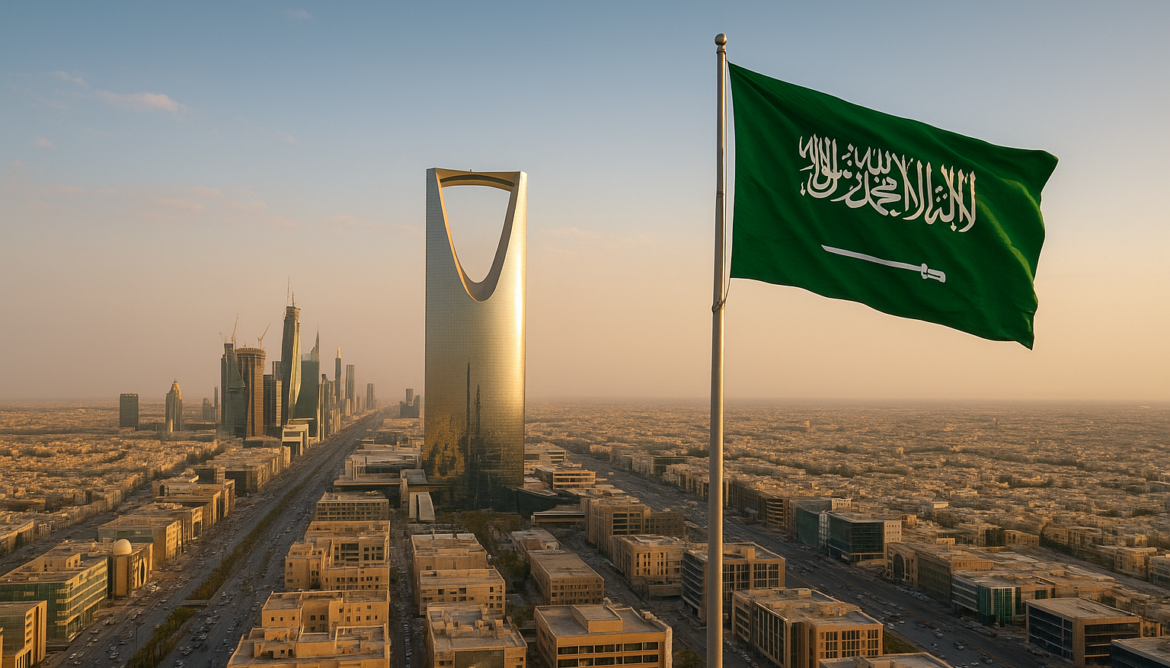The Kingdom of Saudi Arabia was founded in 1932 by King Abdulaziz (also known as Ibn Saud), who united the various regions that make up the Kingdom into a single state through a series of conquests, beginning in 1902 with the capture of Riyadh, the ancestral home of his family which is known as the House of Saud. Saudi Arabia has since then become an absolute monarchy governed by the Saudi royal family with little or no public input. According to its constitution, Saudi Arabia defines itself as a sovereign Arab Islamic state with Islam as its official religion and Arabic as its official language.
Shortly after the Kingdom of Saudi Arabia was established, huge reserves of crude oil were discovered in 1938 which made the kingdom to become the world’s biggest exporter of crude oil and the third-largest oil producer in the world, with the world’s second-largest oil reserves and the sixth largest gas reserves. Saudi Arabia is categorized by the World Bank as a high-income country and is the only Arab country among the G20 major economies.
The Saudi economy is also the largest in the Middle East, the world’s nineteenth largest by nominal GDP, and the seventeenth by Purchasing Power Parity (PPP). Ranking very high in the Human Development Index, Saudi Arabia also offers tuition-free university education, no personal income tax, and free universal health care to its citizens.
Despite the size and wealth of Saudi Arabia, the Kingdom started lagging behind its smaller neighbors like the UAE and Qatar in terms of development due to the ultra-conservative version of Islamic rule that it had adopted which was not very accommodating of none Muslims and the outside world.
Apart from the threat of losing its status as the dominant economy in the Arab world, there is also the long-term threat of crude oil losing its relevance as the primary source of energy in the global economy as the world moves towards the use of cleaner sources of energy in a bid to protect the planet from greenhouse gases which are suspected to be the leading cause of global warming. A drop in global demand for crude oil would have dire consequences for the Saudi Arabian economy as the government before now depended on it for over 90% of its revenues.
It was perhaps the gloomy future of the relevance of oil to the global economy and Saudi Arabia’s overdependence on the product that informed Mohammed bin Salman the Crown Prince of Saudi Arabia and de facto ruler of the Kingdom to introduce reforms aimed at developing other sectors of the Kingdom’s economy so that it will be less dependent on oil.
Mohammed bin Salman’s flagship initiative aptly called Vision 2030 is a comprehensive plan to diversify Saudi Arabia’s economy, reduce its dependence on oil, and develop its non-oil sectors. The plan includes investments in tourism, technology, and renewable energy, aiming to make Saudi Arabia a more sustainable and diversified economy.
As part of the efforts to make the Kingdom more attractive to tourists, Mohammed bin Salman introduced various social reforms that were deemed controversial which include issues of women’s rights by allowing women to start driving and weakening the male guardianship system.
Religious Reforms were also introduced by restricting the powers of the religious police while promoting a more moderate form of Islam which didn’t go down well with the conservative establishment in the Kingdom.
More specifically, the economic reforms include privatizing state-owned enterprises, encouraging foreign investment, and encouraging private sector participation in key industries. Diversifying the economy by developing non-oil sector industries, such as tourism, manufacturing, and renewable energy. The economic reforms also include plans to attract foreign investment to stimulate growth while innovative initiatives to foster entrepreneurship, research, and development are also being encouraged.
Key Initiatives of the Kingdom’s economic reforms include Neom a $500 billion mega-city project, focusing on innovation, technology, and sustainability, the development of 50 islands for luxury tourism in the Red Sea, the targeting of 50% of electricity generation from renewable sources by 2030 and Saudi Aramco’s IPO which was the largest initial public offering (IPO) in history, with proceeds of $25.6 billion going to the Kingdom.
The economic reforms also include relaxing regulations for allowing foreign investments and establishing the Saudi Investment Authority to promote investments in the Kingdom. To encourage manufacturing, industrial cities were developed to encourage small and medium-sized enterprises (SMEs) to go into manufacturing while significant investments were also made in digital infrastructure and e-government services.
To promote tourism, Saudi Arabia has invested heavily in sports and now competes with top European football clubs for the world’s top football talents while the country has been playing host to several high-profile boxing fights, including Tyson Fury vs. Francis Ngannou and Tyson Fury vs. Oleksandr Usyk. This has led to Saudi Arabia becoming a major hub for combat sports with many big-name fighters and promoters partnering with the Kingdom to stage fighting events. The Kingdom has also relaxed the rules on the prohibition of alcohol in a bid to attract more tourists to their country.
Saudi Arabia’s economic transformation is underway, driven by Vision 2030. While challenges persist, the kingdom’s commitment to diversification, privatization, and innovation has yielded promising results. As the economy continues to evolve, Saudi Arabia is poised to become a major player in the global economy.
Oshobi, a development economist, management consultant, and author writes from Lagos, Nigeria.
,

